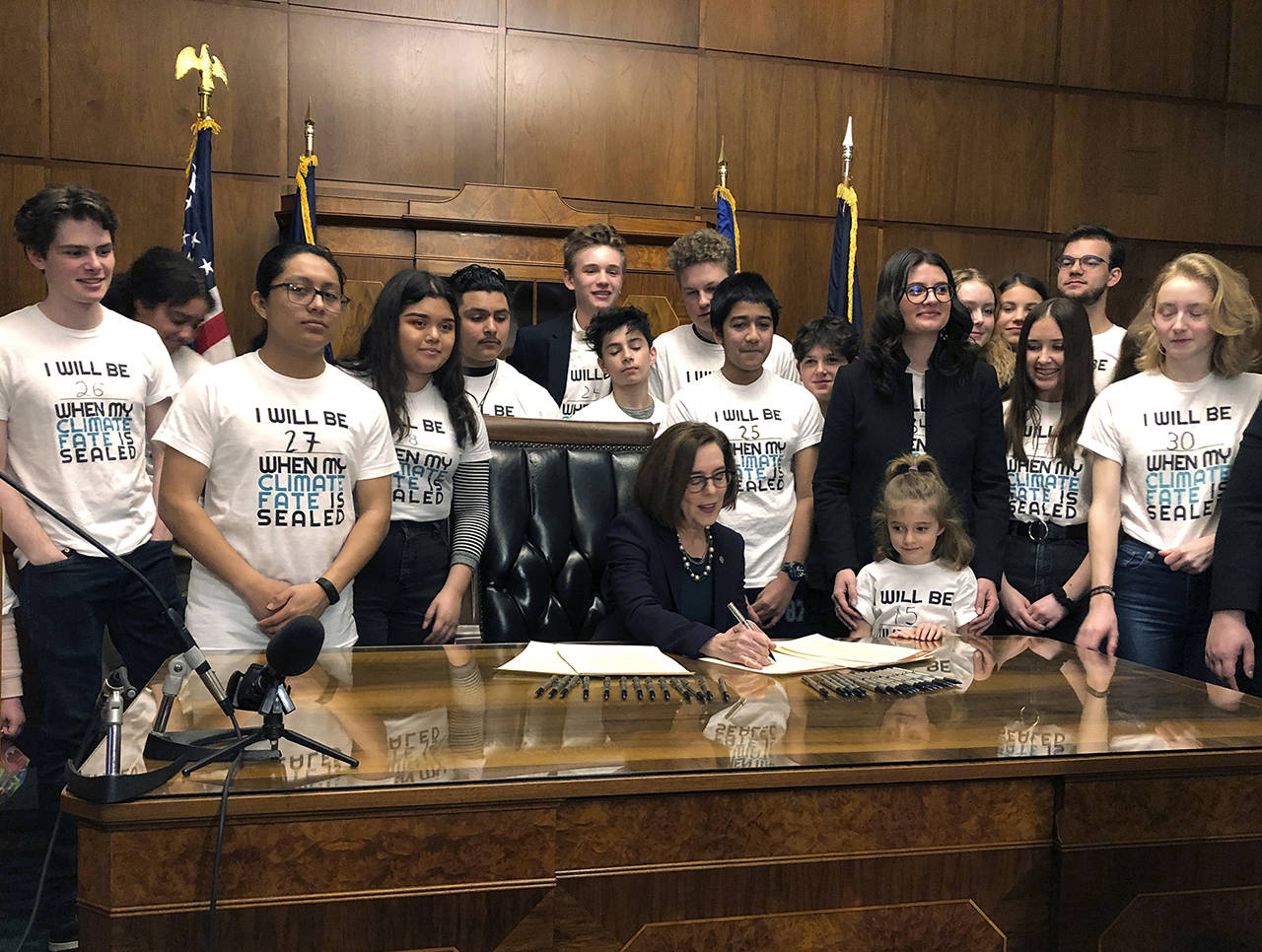By Andrew Selsky / Associated Press
SALEM, Ore. — In an end run around Republican legislators, Oregon’s Democratic governor ordered the state on Tuesday to lower greenhouse gas emissions, directing a state agency to set and enforce caps on pollution from industry and transportation fuels.
Gov. Kate Brown’s sweeping executive order, one of the boldest in the nation, aims to reduce carbon emissions to at least 45% below 1990 levels by 2035 and an 80% reduction from 1990 levels by 2050. It more than doubles a clean fuels program, making it the most ambitious goal for clean fuels in the country, Brown said at a news conference.
“I’ve heard it loud and clear from our young people in Oregon: climate action is crucial and urgent,” Brown said, surrounded by students. “If we adults don’t take action right away, it is the next generation that will pay the price.”
Republicans lawmakers, a minority in the Legislature, staged a walkout during this year’s short session to sabotage a bill that aimed at many of the same climate goals. The boycott caused the session to end two days early on Friday, with only three bills passed and more than 100 dying, including the climate measure.
Senate Republican leader Herman Baertschiger, Jr. predicted Brown’s executive action would wind up in court.
“I think all this is going to do is initiate a whole bunch of lawsuits,” he said Monday. Brown’s legal team said it is confident they would prevail in any litigation.
The order beefs up Oregon’s clean fuels program. It is currently on schedule to achieve a 10% reduction in the carbon intensity of fuels — primarily gasoline and diesel — by 2025, said Kristen Sheeran, director of Brown’s carbon policy office. The governor’s executive order doubles the target to a 20% reduction by 2030, and 25% by 2035, Sheeran said.
Brown’s executive order is a step past what a few other Democratic governors have done.
Last year, Pennsylvania Gov. Tom Wolf ordered his administration to start working on regulations to join a nine-state consortium of Northeastern and mid-Atlantic states that sets a price and declining limits on carbon dioxide emissions from power plants.
North Carolina Gov. Roy Cooper issued an executive order in 2018 setting goals to reduce greenhouse gas emissions statewide by 40% by 2025 compared to 2005 levels; have 80,000 zero-emission vehicles registered in the state by 2025; and lower energy consumption in state-owned buildings by at least 40% compared to 2003 levels. But utilities and businesses aren’t mandated by law to meet this goal.
In Oregon, the state has regulatory authority under existing law, Sheeran said. Brown’s executive order directs the Department of Environmental Quality to create additional rules and take additional actions to meet the goals.
“In the absence of effective federal engagement on these issues, it is the responsibility of individual states to take immediate action,” the order says.
“This action will hold large corporate polluters accountable for the pollution they create,” said Tera Hurst, executive director of Renew Oregon, a group that advocates for clean energy.
Talk to us
> Give us your news tips.
> Send us a letter to the editor.
> More Herald contact information.


























